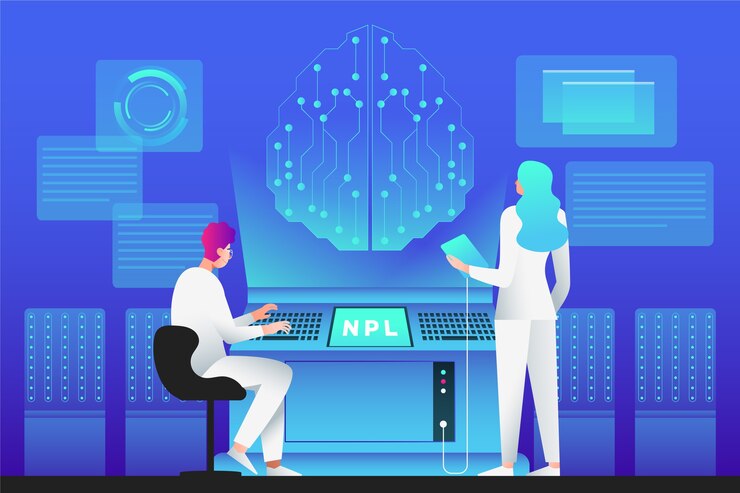
The rapid evolution of technology continuously shapes various aspects of our lives, driving progress and innovation. Among the most impactful technology trends today are Artificial Intelligence (AI) and Blockchain Technology. This article explores these trends, delving into their current applications, benefits, and future implications.
Artificial Intelligence (AI) Trends
Artificial Intelligence (AI) represents one of the most transformative forces in technology. It encompasses a range of innovations that enhance machine learning, automation, and data analysis.
- AI-Powered Automation AI-powered automation is revolutionizing industries by streamlining operations and improving efficiency.
- Robotic Process Automation (RPA): RPA uses AI to automate repetitive tasks, such as data entry and processing, reducing the need for human intervention and minimizing errors.
- Intelligent Virtual Assistants: Virtual assistants, like Siri and Alexa, use AI to understand and respond to natural language, providing users with information, performing tasks, and integrating with smart home devices.
- Predictive Maintenance: AI algorithms analyze data from machinery and equipment to predict potential failures, enabling proactive maintenance and reducing downtime.
- AI in Healthcare AI is transforming healthcare by enhancing diagnostics, personalized medicine, and patient care.
- Diagnostic Tools: AI algorithms analyze medical images, such as X-rays and MRIs, to detect anomalies and assist in early diagnosis of diseases like cancer.
- Personalized Treatment: AI analyzes patient data to tailor treatment plans based on individual health profiles, improving outcomes and reducing side effects.
- Drug Discovery: AI accelerates drug discovery by analyzing biological data and predicting how new drugs will interact with targets, speeding up the development of new therapies.
- Ethical and Social Implications As AI technology advances, ethical and social considerations become increasingly important.
- Bias and Fairness: Ensuring that AI systems are free from biases and provide equitable outcomes is crucial for maintaining fairness and trust.
- Privacy: Protecting user data and ensuring responsible data usage are essential for safeguarding privacy in AI applications.
- Job Displacement: The impact of AI on employment and the need for reskilling and upskilling workers are important considerations in managing technological transitions.
Blockchain Technology Trends
Blockchain technology, initially associated with cryptocurrencies, has expanded its applications across various industries, offering enhanced security and transparency.
- Blockchain in Finance Blockchain technology is transforming the financial sector by providing secure and efficient transaction methods.
- Cryptocurrencies: Digital currencies like Bitcoin and Ethereum leverage blockchain to enable decentralized transactions and reduce reliance on traditional financial institutions.
- Decentralized Finance (DeFi): DeFi platforms use blockchain to offer financial services such as lending, borrowing, and trading without intermediaries, creating new opportunities for financial inclusion.
- Smart Contracts: Self-executing contracts with coded rules automate and enforce agreements, reducing the need for intermediaries and minimizing fraud.
- Blockchain in Supply Chain Management Blockchain enhances supply chain management by providing transparency and traceability.
- Provenance Tracking: Blockchain records every transaction in the supply chain, offering a transparent history of product origins and movements, and ensuring authenticity.
- Fraud Prevention: By securing data and preventing tampering, blockchain helps prevent counterfeit goods and fraud, enhancing supply chain integrity.
- Efficiency Gains: Blockchain reduces administrative costs and improves process efficiency by automating transactions and eliminating intermediaries.

- Blockchain in Healthcare Blockchain technology improves data security and interoperability in the healthcare sector.
- Electronic Health Records (EHRs): Blockchain provides a secure and immutable record of patient health data, facilitating better data sharing and reducing administrative burdens.
- Clinical Trials: Blockchain enhances transparency and trust in clinical trials by recording and verifying trial data, reducing manipulation and improving credibility.
- Drug Supply Chain: Blockchain ensures the authenticity and traceability of pharmaceuticals, reducing the risk of counterfeit drugs and improving patient safety.
The Future of Technology Trends
- Emerging Technologies
- Quantum Computing: Quantum computers promise to revolutionize data processing by solving complex problems that are beyond the reach of classical computers, potentially transforming various industries.
- 5G Networks: The rollout of 5G technology offers faster speeds, lower latency, and enhanced connectivity, enabling advancements in Internet of Things (IoT), autonomous vehicles, and smart cities.
- Augmented Reality (AR) and Virtual Reality (VR): AR and VR technologies are creating immersive experiences and interactive environments in fields such as entertainment, education, and training.
- Challenges and Opportunities
- Integration and Scalability: The integration of new technologies into existing systems and their scalability are key challenges that need to be addressed for widespread adoption.
- Security and Privacy: Ensuring robust security measures and protecting user privacy are crucial for the successful deployment of emerging technologies.
- Regulation and Governance: Developing regulations and governance frameworks to manage the ethical and societal impact of new technologies is essential for balanced progress.
- Collaboration and Innovation
- Industry Collaboration: Partnerships between technology companies, research institutions, and governments foster innovation and accelerate the development of new solutions.
- Open Source Initiatives: Open source projects encourage transparency and collaboration, allowing a diverse range of contributors to advance technological innovations.
- Global Cooperation: International collaboration and knowledge sharing are vital for addressing global challenges and maximizing the benefits of emerging technologies.
Conclusion
Technology trends, particularly in Artificial Intelligence (AI) and Blockchain Technology, are driving significant advancements and reshaping various industries. As these technologies continue to evolve, they offer new opportunities for innovation and improvement while also presenting challenges that require careful management. Embracing these trends and staying informed about emerging developments will be key to navigating the dynamic technological landscape and leveraging its benefits for future growth and success.

1 thought on “Exploring Technology Trends Innovations in Artificial Intelligence and Blockchain Technology”